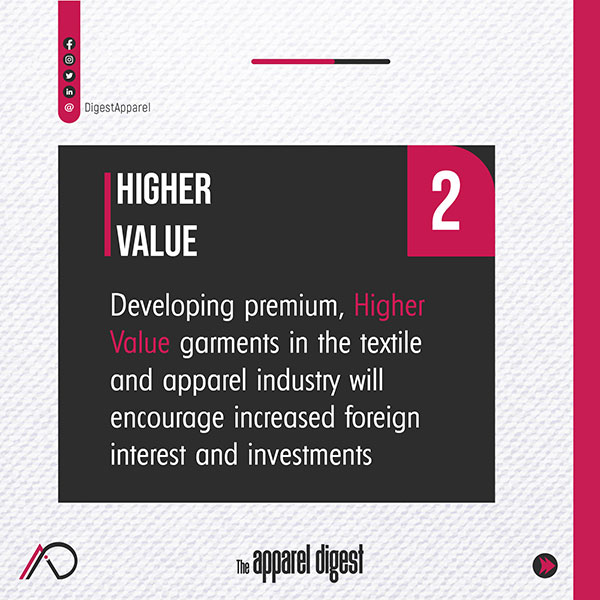Allie Sutton, CEO of Moonlight Technologies, the company that recently introduced five new sustainable, carbon-negative, plant-based technologies for fabrics, believes that these innovations will change the future of fashion. The technologies were just launched on the market. Allie discusses with FashionUnited why plant-based textiles are the way of the future in this interview.
As is the case with a great many other tales, it all began because of Covid. Sutton explains, “I thought there must be another technology to ease the pain, one that doesn’t require throwing away single use items such as gloves and gowns.” “I thought there must be a different technology to ease the pain.” “There ought to be a technology where the virus, rather than the fabric, is the one that perishes.”
Dr. Phyllis Levine, a gynecologic oncologist with a degree in Materials Science and Engineering from the Massachusetts Institute of Technology, is also a member of the team. Dr. Levine serves as the global medical director at Moonlight. Sutton and Levine formed a partnership with a company that was focusing on the chemistry of plants for a variety of applications.
Sutton believes that natural dyes and products that do not require washing will dominate the fashion industry in the future. After the fabric has been dyed, the technologies that make it self-cleaning are applied. This is also the time when other treatments and finishings are added. Moonlight Technologies’ mission to use the power of nature to create a more sustainable, safer, and healthier world through plant-based innovation appeals to brands around the world who, according to Sutton, are already lined up to acquire the technology. Moonlight Technologies’ plant-based innovations are aimed at making the world more sustainable, safer, and healthier through the use of plant-based innovation.
The five technologies are as follows: EcoArmor, which is one of the world’s first sustainable antimicrobial technologies for air, plastic, and fabric, and which eliminates 99.9 percent of bacteria and viruses, mold, and fungus; InsectProof is a bug repellent technology for fabrics, skin, and hard-goods that is derived from plants and does not contain permethrin; The self-cleaning fabric technology known as MindfullyClean, which allows products that have been treated with it to remain fresh and clean regardless of use and to only need to be washed very infrequently; OdorSafe, which permanently destroys and eliminates bad odors on fabrics; and Natural Dyes, which is a complete range of sustainably derived, non-toxic, biodegradable colorants for hard goods and textiles. Both of these products can be found on the company’s website. Every single piece of technology can be used on any kind of fabric, whether it be natural or synthetic.
Moonlight Technologies is now able to offer a full range of natural dyes extracted from plants, including one of the first natural blacks that does not come from charcoal. According to Sutton, those who work with natural dyes are aware that it is nearly impossible to get true dark colors. Synthetic dyes were first discovered in the 1850s and were valued for their ability to be mass produced and color textiles vividly. However, synthetic dyes contain toxic chemicals that are harmful to the environment and are therefore banned in many countries. Natural dyes are safe for both people and the environment because they do not cause allergic reactions and are derived from plants, trees, flowers, and fungi. In general, natural dyes are more expensive than their synthetic counterparts; however, according to Sutton, the dyes produced by Moonlight Technologies, which are derived from a process that is 100 percent carbon negative, are also priced competitively.
Despite the fact that Sutton has spent his entire career in the fashion industry, he is very enthusiastic about making these environmentally friendly solutions accessible to all areas of business. They have the potential to change things like clothing, uniforms, home textiles, air filtration, travel products, products for hospitality, fitness equipment, electronics, furniture, and paint, among other things. “A number of retailers are already incorporating our technology,” says Sutton. We are also collaborating with some of the most well-known companies in the world, many of which are testing our technologies and are considering integrating them into their operations. Through this launch, we are looking forward to collaborating with partners in a wide variety of industries to begin implementing our technologies in applications that are used in the real world.
Derived from plants, self-cleaning, and colored with natural pigments? It provides an entirely fresh interpretation of the term “green washing.”
Reference:
Mallon, Jackie. “5 New Plant-Based Sustainable Innovations in Fabric Technology.” FashionUnited, 12 July 2022, https://fashionunited.com/news/fashion/5-new-plant-based-sustainable-innovations-in-fabric-technology/2022071248577.
Image Courtesy:
https://buddhajeans.com/encyclopedia/sustainable-technology/

